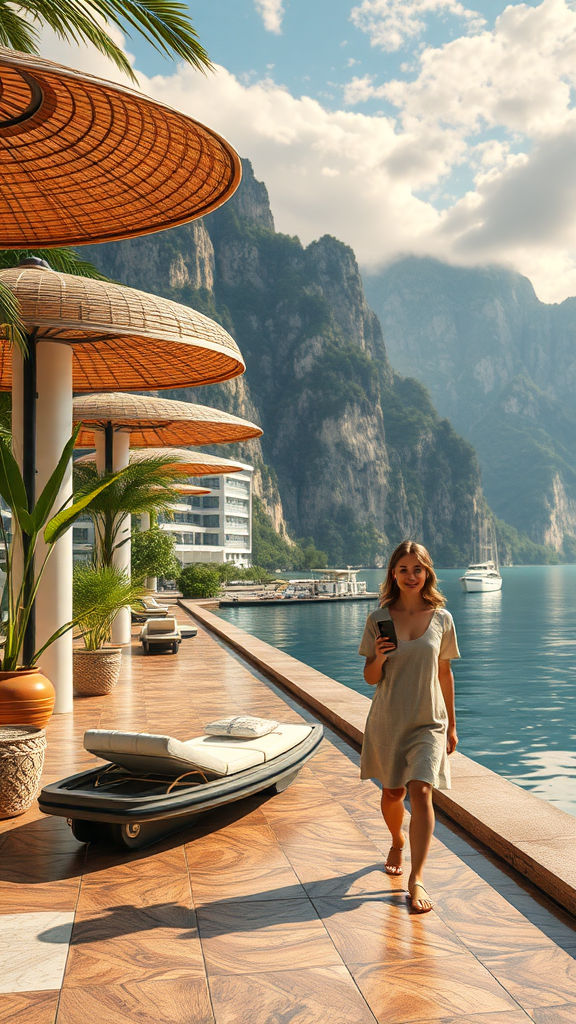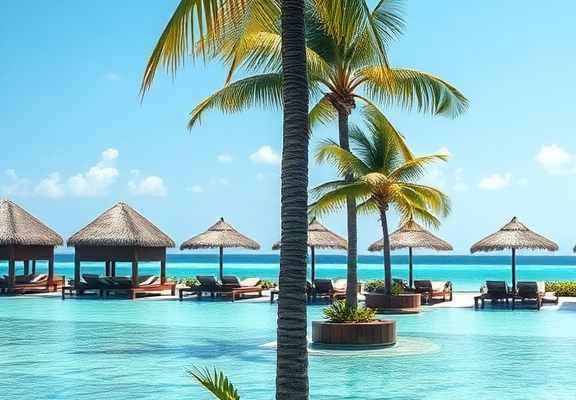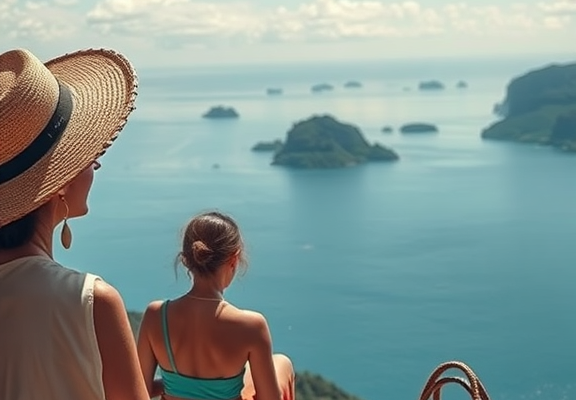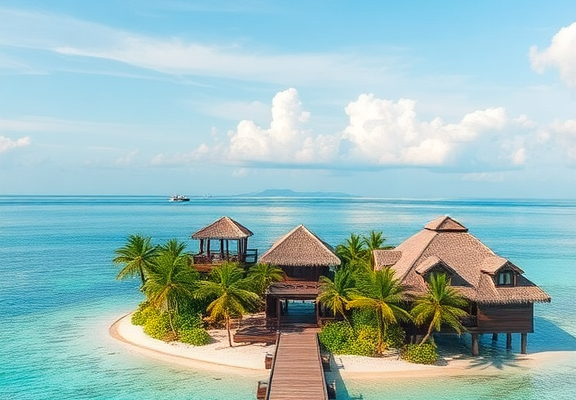What Luxury Travelers Really Want in 2025: Trends and Expectations
As we step into 2025, the landscape of luxury travel is evolving rapidly. Global events, changing consumer preferences, and technological advancements are shaping what affluent travelers seek. Understanding these trends is essential for service providers aiming to meet the unique demands of luxury travelers in the coming years.
Thank you for reading this post, don't forget to subscribe!Personalization: The New Standard
Luxury travelers want experiences tailored just for them. This personalization goes beyond simple preferences; it touches on their deeper desires and values. Here are some ways personalization manifests:
- Customized Itineraries: Travelers want itineraries that reflect their interests, whether it’s culinary experiences, adventure sports, or cultural immersions.
- Unique Accommodations: Instead of standard hotel rooms, luxury travelers prefer unique lodgings, like boutique hotels or private villas that guarantee exclusivity.
- Dedicated Concierge Services: Access to personal concierges who can facilitate reservations, activities, and alterations to plans on the fly is becoming more crucial.
Experiential Travel: Beyond Sightseeing
In 2025, luxury travel is not just about visiting picturesque places; it’s about immersing oneself in the culture. Travelers are seeking experiences that are memorable and meaningful. The focus is shifting to:
- Local Engagement: Travelers yearn for opportunities to engage with locals, such as cooking classes or craft workshops.
- Adventure and Wellness Merging: Unique retreats combining relaxation and adventure, like yoga on mountain peaks or wellness spa treatments paired with nature hikes, are highly sought after.
- Philanthropic Opportunities: Many luxury travelers want to give back, seeking trips that allow them to participate in meaningful community initiatives.
Sustainability: A Core Principle
Luxury travelers are becoming increasingly conscious of their environmental footprint. In 2025, sustainability will not just be an option but a necessity. Travelers are looking for:
- Eco-Friendly Accommodations: Hotels and resorts that prioritize sustainability through green building practices, organic foods, and waste reduction are preferred.
- Carbon Offset Programs: Travelers want information on how their carbon emissions are being offset, allowing them to travel more responsibly.
- Support for Local Economies: Many luxury travelers are inclined to choose local businesses over international chains to help boost the local economy.
Technological Innovations: The Age of Smart Travel
With advancements in technology, luxury travelers in 2025 are seeking seamless, tech-enhanced experiences:
- Smart Concierge Apps: Travelers desire apps that can cater to their every need, from booking restaurants to last-minute changes in travel plans.
- Virtual Reality Experiences: Before booking, travelers may want to experience destinations through VR to gauge whether they meet their expectations.
- Integrated Systems: Everything should connect smoothly—from check-in to the in-flight experience—to reduce stress and enhance leisure time.
Health and Safety: A Priority
Post-pandemic, health and safety have vaulted to the forefront of luxury travel. High-end travelers in 2025 will expect:
- Stringent Health Protocols: Regular updates and adherence to robust health guidelines are essential for peace of mind while traveling.
- Flexible Booking Policies: Understanding that plans may change, luxury travelers expect flexibility in cancellations and changes without exorbitant fees.
- Contactless Solutions: An increase in demand for contactless check-in and payment options to minimize physical interactions is likely to continue.
In sum, luxury travelers in 2025 are looking for personalized, meaningful experiences that prioritize sustainability and health. As technology continues to enhance their journey, service providers must adapt by offering tailored, responsible travel solutions. Meeting these demands will ensure satisfaction and loyalty from this influential segment of the market.
The Role of Sustainability in Shaping Luxury Travel Experiences
As luxury travel evolves, a significant shift towards sustainability is becoming evident. Today’s affluent travelers are not just seeking opulence; they are also concerned about their environmental impact. In 2025, luxury travelers will prioritize experiences that allow them to indulge without compromising their values. It’s essential for the travel industry to adapt to these new desires.
Luxury travelers in 2025 will increasingly desire eco-conscious offerings. Here are some key aspects they value:
- Eco-Friendly Accommodations: High-end resorts and hotels are investing in sustainable practices. This includes using renewable energy sources, sourcing local and organic food, and implementing water conservation efforts. Travelers seek accommodations that reflect their values, showcasing green initiatives in their operations.
- Responsible Tourism Experiences: Luxury travelers want their adventures to benefit local communities. This includes participating in programs that promote cultural exchange and support local artisans. Unique experiences, such as guided tours led by indigenous people, resonate with conscious travelers.
- Carbon Offsetting Options: Many luxury travelers expect airlines and tour operators to provide transparent offsetting options for their carbon footprint. This means allowing travelers to contribute to environmental projects when booking their flights or excursions.
- Waste Reduction Practices: The growing trend of zero-waste travel is becoming attractive. Luxury brands are expected to demonstrate commitment by eliminating single-use plastics and adopting composting and recycling policies.
- Gourmet Plant-Based Cuisine: Culinary experiences play a significant role in luxury travel. In 2025, travelers will favor gourmet plant-based options that showcase fresh, local ingredients. These meals not only satisfy refined tastes but also promote a healthier planet.
Luxury travelers are becoming more educated about the impact of their choices. They are inclined to support brands that prioritize sustainability and demonstrate a genuine commitment. Transparency is critical; being open about practices and partnerships with local communities is necessary to win their trust. Brands must communicate their sustainability efforts effectively through authentic storytelling and clear messaging.
Another significant theme in luxury travel is personalization. Modern travelers expect tailored experiences that cater to their specific interests. Sustainable options should also feel exclusive and unique. For instance, a luxury hotel might offer personalized wellness retreats that incorporate yoga, meditation, and organic cuisine—all while remaining eco-friendly. This way, travelers indulge in self-care with a clear conscience.
Connectivity to nature is another aspect where luxury meets sustainability. In 2025, travelers will seek out immersive experiences in nature while maintaining comfort. Luxury travel providers are anticipated to create opportunities for guests, such as private guided hikes in breathtaking locations or serene beach getaways that are conscious of their environmental impact.
Technology will also play a significant role in shaping luxury travel, particularly in sustainability efforts. Digital platforms that assess a traveler’s environmental impact and provide suggestions for lower-impact options will become popular. Smart technology in accommodations will help in monitoring energy use and reducing waste, further enhancing the eco-friendly luxury environment.
To stay competitive, brands must understand and embrace these shifting consumer preferences. The transition to sustainability in luxury travel will not only enhance traveler satisfaction but also ensure the preservation of the beautiful destinations they wish to explore. As more travelers prioritize their impact on the planet, the push for sustainability in luxury experiences will only grow stronger.
Looking ahead, the industry faces the challenge and responsibility of balancing luxury with sustainability. For those involved in luxury travel, adopting these eco-friendly practices is not merely a trend; it is a fundamental shift that aligns with the values of modern travelers. By offering sustainable luxury experiences, the travel industry can create a brighter future, benefiting travelers and preserving the planet for generations to come.
In essence, the luxury travel market in 2025 will be defined by a harmonious blend of indulgence and responsibility, creating memorable experiences that do good while feeling great.
Conclusion
As we approach 2025, it’s clear that luxury travelers are redefining what it means to experience comfort, exclusivity, and adventure. Today’s affluent adventurers are seeking not only opulence but also a genuine connection with the places they visit. They desire bespoke experiences that reflect their personal values, with a strong emphasis on sustainability. This shift toward eco-friendly travel options demonstrates a growing commitment to preserving our planet while enjoying premium services.
The evolution of luxury travel now includes authentic cultural exchanges and immersive experiences that allow travelers to engage more deeply with local communities. Young travelers, in particular, are driving this trend by prioritizing purpose-driven journeys that leave a minimal ecological footprint. High-end resorts and travel companies that adapt to these preferences stand to benefit greatly by offering unique, immersive experiences that promote conservation and support local economies.
Customization and personalized services remain paramount as travelers look for unique itineraries that align with their interests. From private excursions to wellness retreats that focus on holistic health, the luxury market is responding to these desires with creativity and care.
Ultimately, whether through sustainable practices, cultural engagements, or hyper-personalized services, the future of luxury travel in 2025 hinges on understanding and embracing the evolving wants of today’s discerning travelers. By prioritizing these elements, travel brands can satisfy their clientele and pave the way for a more responsible and enriching travel landscape.






